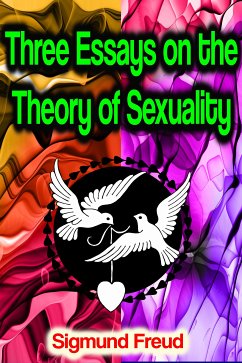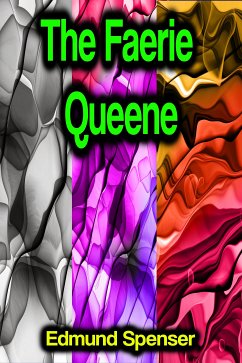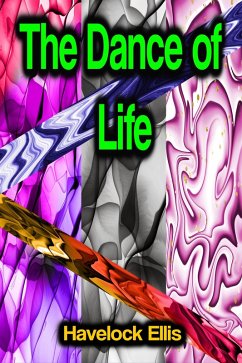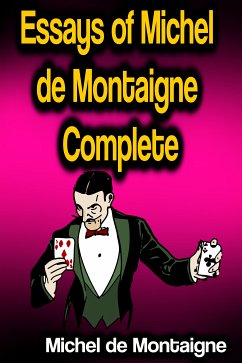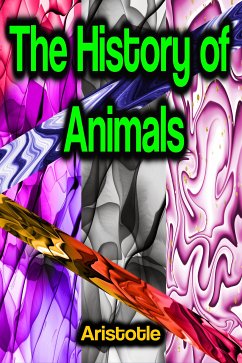Francis Bacon
eBook, ePUB
The Essays (eBook, ePUB)

PAYBACK Punkte
0 °P sammeln!





The Essays Francis Bacon - Essayes: Religious Meditations. Places of Perswasion and Disswasion. Seene and Allowed was the first published book by the philosopher, statesman and jurist Francis Bacon. The Essays are written in a wide range of styles, from the plain and unadorned to the epigrammatic.
Dieser Download kann aus rechtlichen Gründen nur mit Rechnungsadresse in A, B, BG, CY, CZ, D, DK, EW, E, FIN, F, GR, H, IRL, I, LT, L, LR, M, NL, PL, P, R, S, SLO, SK ausgeliefert werden.
- Geräte: eReader
- ohne Kopierschutz
- eBook Hilfe
- Größe: 0.75MB
- FamilySharing(5)
- Text-to-Speech
- Keine oder unzureichende Informationen zur Barrierefreiheit
Francis Bacon, 1st Viscount St Alban, QC, was an English philosopher, statesman, scientist, jurist, orator, essayist, and author. He served both as Attorney General and Lord Chancellor of England. After his death, he remained extremely influential through his works, especially as philosophical advocate and practitioner of the scientific method during the scientific revolution. Bacon has been called the creator of empiricism. His works established and popularised inductive methodologies for scientific inquiry, often called the Baconian method, or simply the scientific method. His demand for a planned procedure of investigating all things natural marked a new turn in the rhetorical and theoretical framework for science, much of which still surrounds conceptions of proper methodology today. Bacon was knighted in 1603 (being the first scientist to receive a knighthood), and created Baron Verulam in 1618 and Viscount St. Alban in 1621. Bacon's ideas were influential in the 1630s and 1650s among scholars, in particular Sir Thomas Browne, who in his encyclopaedia Pseudodoxia Epidemica (1646-72) frequently adheres to a Baconian approach to his scientific enquiries. During the Restoration, Bacon was commonly invoked as a guiding spirit of the Royal Society founded under Charles II in 1660. During the 18th-century French Enlightenment, Bacon's non-metaphysical approach to science became more influential than the dualism of his French contemporary René Descartes, and was associated with criticism of the ancien regime. In 1733 Voltaire "introduced him as the "father" of the scientific method" to a French audience, an understanding which had become widespread by 1750. In the 19th century his emphasis on induction was revived and developed by William Whewell, among others. He has been reputed as the "Father of Experimental Science". Bacon is also considered because of his introduction of science in England to be the philosophical influence behind the dawning of the Industrial age. In his works, Bacon stated "the explanation of which things, and of the true relation between the nature of things and the nature of the mind, is as the strewing and decoration of the bridal chamber of the mind and the universe, out of which marriage let us hope there may spring helps to man, and a line and race of inventions that may in some degree subdue and overcome the necessities and miseries of humanity" meaning he hoped that through the understanding of mechanics using the Scientific Method, society will create more mechanical inventions that will to an extent solve the problems of Man. This changed the course of science in history, from a experimental state, as it was found in medieval ages, to an experimental and inventive state - that would have eventually led to the mechanical inventions that made possible the Industrial Revolutions of the following centuries. He also wrote a long treatise on Medicine, History of Life and Death, with natural and experimental observations for the prolongation of life. For one of his biographers, the historian William Hepworth Dixon, Bacon's influence in modern world is so great that every man who rides in a train, sends a telegram, follows a steam plough, sits in an easy chair, crosses the channel or the Atlantic, eats a good dinner, enjoys a beautiful garden, or undergoes a painless surgical operation, owes him something.
Produktdetails
- Verlag: Phoemixx Classics Ebooks
- Seitenzahl: 555
- Erscheinungstermin: 15. November 2021
- Englisch
- ISBN-13: 9783986772741
- Artikelnr.: 62878006
Für dieses Produkt wurde noch keine Bewertung abgegeben. Wir würden uns sehr freuen, wenn du die erste Bewertung schreibst!
Eine Bewertung schreiben
Eine Bewertung schreiben
Andere Kunden interessierten sich für




